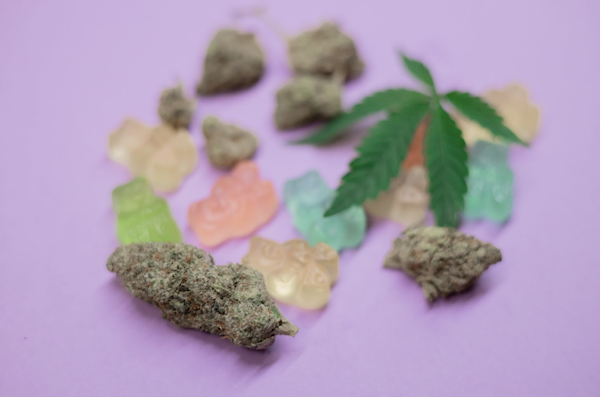The quest for a good night’s sleep is a common challenge, with the American Sleep Association reporting that between 50 to 70 million adults in the U.S. suffer from sleep disorders. Insomnia, in particular, affects approximately 40 million Americans each year, with 10 to 15 percent enduring chronic insomnia. Given the essential role of sleep in maintaining our physical and mental health, disruptions caused by stress, pain, anxiety, or medical conditions can have significant impacts.
Traditionally, many have turned to prescription or over-the-counter sleep aids, yet these solutions often carry unwanted side effects like addiction, tolerance, or daytime drowsiness. As a result, there’s growing interest in cannabis as a natural and alternative way to enhance sleep quality.
Within the medical marijuana community, cannabis is lauded as an effective, low-side-effect treatment for a range of sleep disorders. However, the question remains: how effective is cannabis in addressing sleep problems, and what does the science say about its benefits and risks?
Cannabis as a Natural Sleep Aid
Cannabis, a plant rich in complex chemical compounds known as cannabinoids, interacts with the body’s endocannabinoid system. This system regulates various physiological and cognitive processes, including mood, pain, appetite, memory, and, notably, sleep.
Two primary cannabinoids in cannabis are tetrahydrocannabinol (THC) and cannabidiol (CBD). THC, the main psychoactive element, is responsible for the ‘high’ sensation, while CBD, non-psychoactive, is known for its health benefits like anti-inflammatory, anti-anxiety, and neuroprotective properties.
Cannabis affects sleep in multiple ways, each cannabinoid influencing different aspects like sleep onset, duration, quality, and stages. THC, for instance, increases sleepiness by enhancing adenosine, a neurotransmitter that builds up during the day and promotes tiredness. On the other hand, cannabis’s impact on sleep stages, which includes light sleep, deep sleep, slow-wave sleep, and REM sleep, is complex and multifaceted.
One notable effect is the potential reduction of REM sleep, the stage associated with dreaming. This might benefit individuals suffering from PTSD or nightmares by reducing distressing dreams. However, this reduction could also have long-term consequences on cognitive and immune functioning, as REM sleep is vital for memory consolidation and emotional regulation.
Moreover, the strain and method of cannabis ingestion play crucial roles in its effectiveness as a sleep aid. Cannabis strains are typically categorized as sativa, more energizing, or indica, more sedating. However, individual responses can vary dramatically. Similarly, different methods of ingestion, like smoking, vaping, edibles, or oils, have distinct effects on the duration and intensity of sleep.
A specific application of THC in sleep management is seen in THC sleep gummies, particularly indica strains known for their soothing properties. These gummies are designed to be taken from 30 minutes to 2 hours before bed, allowing the effects to set in gradually and promote a restful night’s sleep.
Exploring the Benefits and Risks
Cannabis offers potential advantages over conventional sleep medications, but it also comes with its own set of risks.
Benefits:
Cannabis may aid people with conditions like chronic pain, PTSD, and restless legs syndrome, improving sleep onset, continuity, and quality. Its appeal also lies in its ability to self-treat symptoms like insomnia, anxiety, and pain, with fewer side effects like addiction or grogginess compared to other sleep medications. Moreover, cannabis carries a lower risk of overdose and dependence than certain prescription or over-the-counter sleep aids.
Risks:
Long-term cannabis use might impair sleep quality and safety, disrupt natural sleep cycles, and elevate risks like sleep apnea. Users may also experience side effects such as dry mouth, red eyes, increased appetite, paranoia, or impaired memory and coordination. Additionally, cannabis can interact negatively with other medications or substances, and legal, social, or professional consequences can arise due to varying laws and regulations.
Best Practices for Cannabis Use in Sleep Management
Consultation with a medical professional is crucial before using cannabis for sleep, especially for those with pre-existing conditions or on other medications. Starting with a low dose and gradually adjusting is key to finding the right balance. Exploring various strains and ingestion methods can help tailor the experience to individual needs.
Cautious use is advised; avoiding nightly or close to bedtime-use can prevent dependency and disruption of the natural sleep cycle. Withdrawal symptoms and tolerance build-up are potential risks, making moderation and mindful use important.
Wrapping Up
In this comprehensive exploration of cannabis and sleep, we’ve delved into the ways it can potentially help or hinder sleep, the specific strains and cannabinoids involved, and the balanced approach needed in its usage. Cannabis may offer short-term relief for some, but its long-term implications and varied effects make it a complex solution. It’s not a panacea for sleep issues and requires careful consideration and professional guidance.
We hope this blog post has shed light on the intricate relationship between cannabis and sleep. Your questions, comments, and personal experiences are welcome in the comment section below.

















